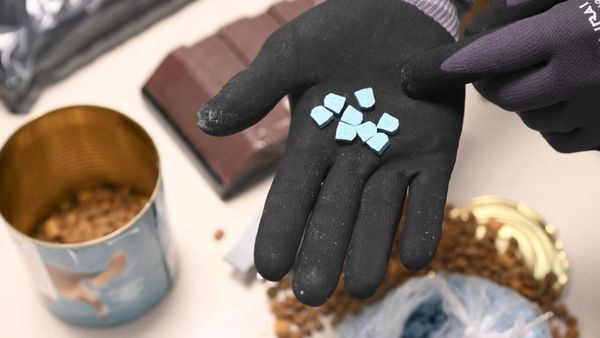The distraught family of a 93-year-old woman have spoken out after she was left in agony and "screaming in pain" waiting for an ambulance for 25 hours. It was suspected Elizabeth Davies had broken her hip and couldn't be moved for more than a day.
For more than 24 hours she was left lying on a wooden floor unable to sleep or visit a toilet.
When she did get to Ysbyty Gwynedd, Bangor, she had to wait another 12 hours before being moved to a ward and having surgery.
Read next: 'Tripledemic' hits Wales causing widespread problems for health and care staff
Her son, Ian Davies, and daughter-in-law Susan, from Pwllheli, told NorthWalesLive: “It was very upsetting to have to see her lying on the floor screaming in pain for over 24 hours."
In an apology from the Welsh Ambulance Trust, bosses blamed winter pressures, high demand and staff sickness levels.
Care home resident Elizabeth was described by her family as still relatively fit, despite using a walking frame to get around the home she had lived in for more than 17 years.
Staff found her sprawled on the floor around 11.45am on Saturday and they called an ambulance, only to be told that one wouldn't be available for six to eight hours.
Ian said: “They said my mother would be a priority because of her age. The care home then called us and we came immediately.”
Talking about the care given to Elizabeth during the wait, he added: "They were excellent. They put a small heater next to her to keep her warm in case she went into shock.”
As Elizabeth was unable to go to the toilet, an absorbant pad was applied A mother of three, originally from Mynytho, Gwynedd, she moved to Pentreuchaf after marrying husband Hughie, the local church organist.
Staff began redialling ambulance control staff once it became clear there would be further delays. It’s understood the care home made a total of nine calls: a tenth was made by Ian and Susan.
Care home staff stayed with her through the night, but it was around 1.15pm on Sunday before an ambulance made it to the scene, some 25 hours and 30 minutes after Elizabeth fell.
Ian says: “I don’t blame the ambulance staff because they are told what jobs to do and my mother wasn’t on the list. But I was very upset by what happened, it was unacceptable.
“The whole of the NHS is struggling at the moment and one of the biggest problems is the shortage of carers. They aren’t paid enough and no one wants to do the job.”
Stephen Sheldon, service manager for the Welsh Ambulance Trust (WAS) in North Wales, extended his apologies to Mrs Davies for her long wait. He invited the family to contact the service directly to raise their concerns.
He said: “Winter pressures coupled with a surge in demand, staff sickness levels and the wider system pressures across NHS Wales has inhibited our ability to respond. Extensive hospital handover delays are well documented and has led to some very long waits for patients.
“On the 17 and 18 December, we spent over 1,600 hours outside hospitals across Wales, waiting to hand patients over to our hospital colleagues. 563 of those hours were lost outside hospitals in North Wales.
“We are working with partners across Wales to mitigate the pressures as best we can. The public can help us by only calling 999 in a serious or life-threatening emergency so that our resources are available for those who need us most.”
Ambulance staff in England and Wales are set to walk out on Wednesday (December 21) , unless a meeting Tuesday with the UK health secretary Steve Barclay can avert it.
Negotiations between unions and ambulance services are still ongoing to work out which incidents should be exempt from strike action.
All category 1 calls (the most life-threatening such as cardiac arrest) will be responded to, while some ambulance trusts have agreed exemptions with unions for specific incidents within category 2 (serious conditions, such as stroke or chest pain).
This means those who suffer trips, falls or other non-life-threatening injuries may not receive treatment.
Read next:
- Thousands of nurses stage second walkout in row over pay
- Wales reports more than 850 scarlet fever cases in a single week
- Strep A symptoms, how long it's contagious for and how it spreads
- Assaults on emergency workers have risen across Wales as staff issue urgent plea
- Dad may never walk again after slipping on ice at work







